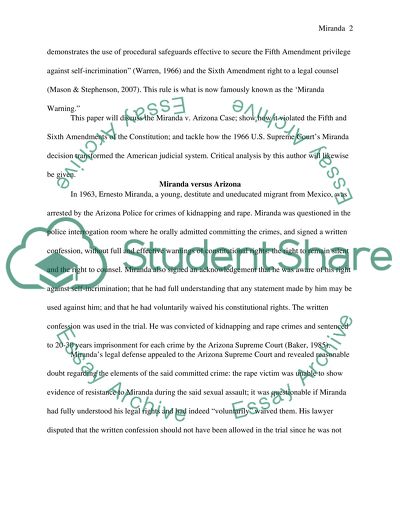Cite this document
(“Miranda v. Arizona Essay Example | Topics and Well Written Essays - 1750 words”, n.d.)
Retrieved from https://studentshare.org/environmental-studies/1414682-miranda-v-arizona
Retrieved from https://studentshare.org/environmental-studies/1414682-miranda-v-arizona
(Miranda V. Arizona Essay Example | Topics and Well Written Essays - 1750 Words)
https://studentshare.org/environmental-studies/1414682-miranda-v-arizona.
https://studentshare.org/environmental-studies/1414682-miranda-v-arizona.
“Miranda V. Arizona Essay Example | Topics and Well Written Essays - 1750 Words”, n.d. https://studentshare.org/environmental-studies/1414682-miranda-v-arizona.


